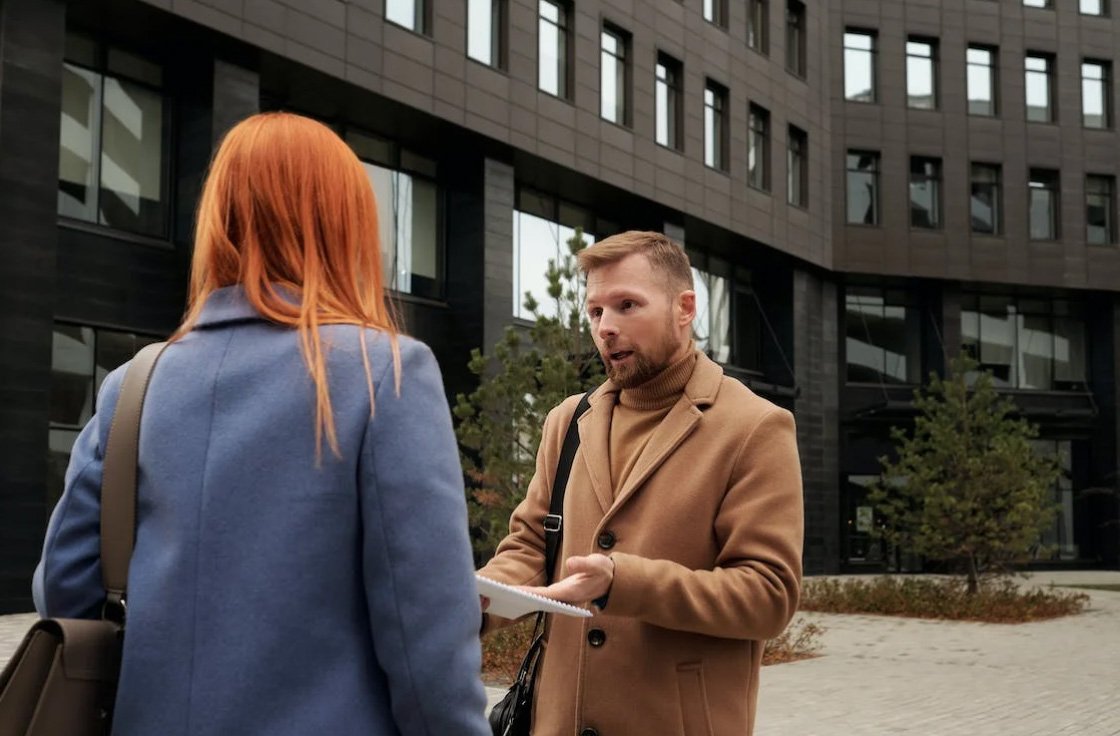Most Common Types of Disputes to Arise Between Landlords & Tenants
Landlords and tenants rely on a harmonious relationship but disputes are common but what disputes are usually seen?
Image ©RDNE Stock project
Disputes between landlords and tenants can sometimes arise, leading to tensions and challenges that need to be addressed. This is something that is common in the industry but there are many reasons why disputes arise. Whether it's regarding rent payments, property maintenance, or lease terms, these conflicts can often be complex and require careful navigation to resolve.
Swansea solicitors and other professionals can play a crucial role in mediating such disputes and providing legal guidance to both parties involved. This article aims to explore some of the most common types of disputes that can occur between landlords and tenants in the UK, shedding light on the rights, responsibilities, and potential solutions for each party.
Common Types of Disputes Between Landlords & Tenants
Rent Issues
Rent issues often spark conflict between landlords and tenants, particularly regarding payment delays or unexpected rent hikes. Effective communication is vital in resolving these disputes, enabling both parties to voice their concerns and explore potential solutions together.
Landlords can demonstrate flexibility by offering payment plans or discussing alternative options for tenants experiencing financial hardship. By opting for an open dialogue and demonstrating empathy towards each other's circumstances, landlords and tenants can work towards mutually beneficial agreements that address rent-related concerns and maintain a harmonious landlord-tenant relationship.
Property Maintenance Concerns
Property maintenance concerns often lead to disagreements between landlords and tenants. Tenants may report various issues like plumbing malfunctions, electrical faults, or general wear and tear in the rental property. According to the law, landlords are obligated to maintain the property in a habitable condition.
Timely addressing of maintenance requests and conducting regular property inspections can mitigate potential conflicts and enhance tenant contentment.
Image ©Jack Sparrow
Proactive communication from landlords about scheduled maintenance or repairs can also lead to transparency and trust. Additionally, maintaining detailed records of maintenance activities and repairs can serve as valuable documentation in case of disputes.
By prioritising property upkeep and promptly addressing maintenance issues, landlords can uphold their legal responsibilities and cultivate a positive landlord-tenant relationship built on trust and mutual respect.
Lease Disagreements
Lease disagreements often stem from differences in interpretation or expectations regarding lease terms and conditions. Common points of contention may include lease renewal procedures, subletting permissions, or requests for property alterations.
To prevent disputes, it's crucial for both landlords and tenants to thoroughly review the lease agreement before signing and seek clarification on any ambiguous clauses.
However, if conflicts do arise, consulting with experienced solicitors specialising in landlord-tenant law can provide invaluable guidance. Legal professionals can offer clarity on rights and obligations outlined in the lease, mediate discussions between parties, and facilitate negotiations to reach a mutually agreeable resolution.
By addressing lease disagreements promptly and collaboratively, landlords and tenants can preserve the integrity of their lease agreement and maintain a positive landlord-tenant relationship.
Security Deposit Disputes
Security deposit disputes are another common issue faced by landlords and tenants. Disagreements may arise over deductions made from the security deposit for damages to the property or unpaid rent.
To avoid disputes, landlords should conduct thorough move-in and move-out inspections, documenting the property's condition with photographs or written records. Tenants, on the other hand, should familiarise themselves with the terms of the tenancy agreement regarding the return of the security deposit.
Noise Complaints
Noise complaints can also lead to friction between landlords and tenants, especially in shared accommodation or multi-tenant buildings. Tenants may file complaints against noisy neighbours or accuse landlords of failing to address noise disturbances adequately.
Landlords can mitigate noise issues by implementing clear noise policies in the tenancy agreement and promptly addressing complaints through effective communication and enforcement of rules.
Legal Assistance and Mediation to Help with Disputes
In cases where disputes cannot be resolved amicably between landlords and tenants, seeking legal assistance from Swansea solicitors may be necessary. Legal professionals can provide guidance on relevant tenancy laws, assist in drafting legal notices, and represent clients in court proceedings if required.
Mediation services may also be available to help facilitate constructive dialogue and reach mutually agreeable resolutions outside of court.
Image ©Keira Burton
Resolving disputes between landlords and tenants…
By understanding their rights and responsibilities and maintaining open communication, landlords and tenants can navigate disputes effectively and preserve a positive and productive rental relationship.
With the assistance of legal professionals when needed, both parties can work towards resolving conflicts in a fair and timely manner, ensuring a harmonious landlord-tenant dynamic.



